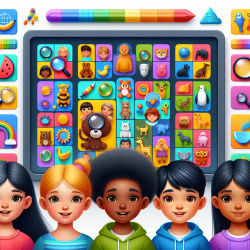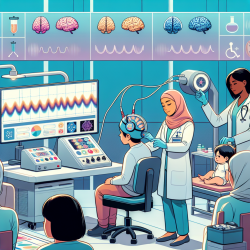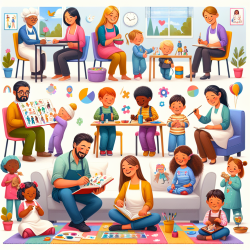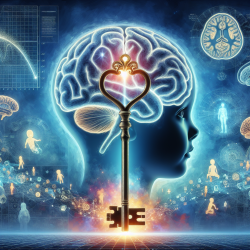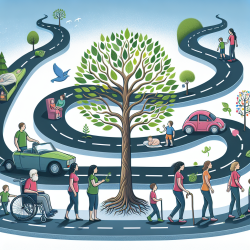Introduction
Adolescent mental health is a critical area of concern, especially when considering the alarming rates of suicide among young people. A recent study titled "Adolescent Suicide Ideation, Depression and Self-Esteem: Relationships to a New Measure of Gender Role Conflict" sheds light on the intricate relationships between gender role conflict (GRC), depression, self-esteem, and suicide ideation among Irish adolescents. As practitioners, understanding these dynamics is crucial in shaping effective interventions and support systems.
Key Findings from the Study
The study involved 176 adolescent boys from Ireland and utilized the Irish Gender Role Conflict Scale for Adolescents (I-GRCS-A) to measure GRC. The findings revealed significant correlations between GRC, depression, and self-esteem, which in turn influenced suicide ideation. Specifically, depression was found to mediate the relationship between GRC and negative suicide ideation, while both depression and self-esteem mediated the relationship between GRC and positive suicide ideation.
Implications for Practitioners
These findings highlight the importance of addressing GRC in adolescent populations. Practitioners can improve their skills and interventions by:
- Recognizing the signs of GRC and its impact on mental health.
- Incorporating discussions around gender roles and expectations in therapy sessions.
- Utilizing data-driven approaches to tailor interventions that address both depression and self-esteem.
- Creating supportive environments that challenge traditional gender norms and promote emotional expression.
Encouraging Further Research
While this study provides valuable insights, it also opens avenues for further research. Practitioners are encouraged to explore:
- The role of cultural and societal influences on GRC and mental health.
- Interventions that specifically target GRC and its associated mental health outcomes.
- The effectiveness of online therapy platforms, like those provided by TinyEYE, in addressing these issues.
Conclusion
Understanding the complex interplay between gender role conflict, depression, and self-esteem is essential for improving adolescent mental health outcomes. By leveraging data-driven insights and fostering open discussions around gender roles, practitioners can make significant strides in supporting adolescents through challenging times.
To read the original research paper, please follow this link: Adolescent Suicide Ideation, Depression and Self-Esteem: Relationships to a New Measure of Gender Role Conflict.



